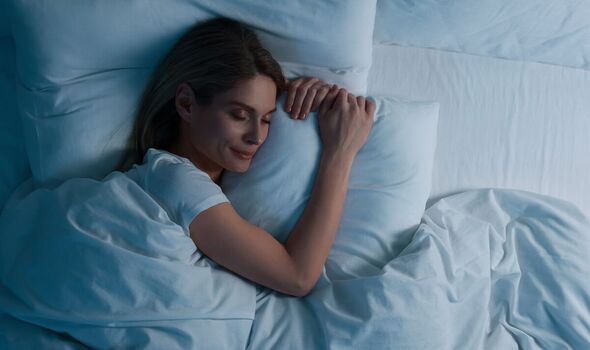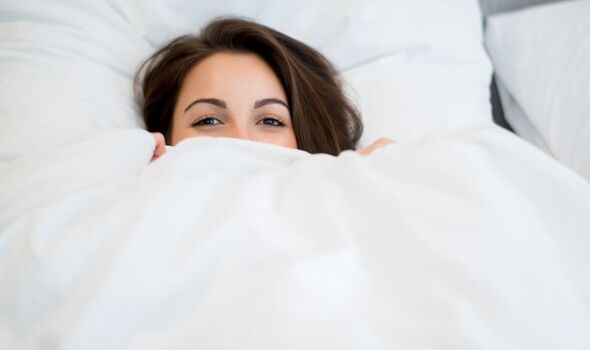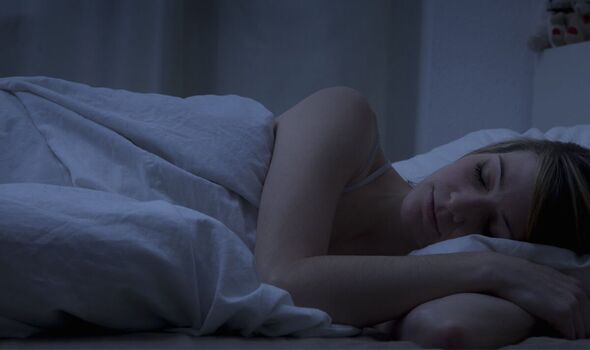Sleep expert shares top tips on how to set up bedroom to get the best night’s sleep
Cold weather can affect our body’s ability to fight off infection and make existing health problems worse. But it can also have a positive impact on our health, particularly when it comes to sleep.
Almost everyone will have experienced feeling sleepy after exposure to cold temperatures, and this can be attributed to several physiological responses in the body, according to Max Kirsten, Resident Sleep Expert for PandaLondon.
He explained: “Feeling sleepier after exposure to cold temperatures can be attributed to several physiological responses in the body. When faced with cold weather, the body engages in thermoregulation, a process that involves redistributing blood flow to maintain core temperature. Peripheral vasoconstriction occurs, narrowing blood vessels in extremities to conserve heat, which, in turn, may lead to a decrease in overall energy levels.
“Additionally, cold weather and reduced exposure to natural light can influence the circadian rhythm, prompting the release of melatonin, a hormone that regulates sleep-wake cycles.
“The body may also expend more energy to generate and maintain warmth in colder conditions, contributing to increased fatigue.
Cold weather can help with getting to sleep (Image: GETTY)
“Overall, the combination of thermoregulatory processes, circadian rhythm adjustments, and energy expenditure in response to cold temperatures can collectively make individuals feel sleepier after being out in the cold.”
What is the Danish method?
The Danish method, known as ‘hygge’ (pronounced hoo-gah) involves keeping the bedroom cool while using warm bedding.
Max said: “This practice is believed to create a cosy and comfortable sleep environment. The idea is to enjoy the contrast between the cool room and the warmth of the bed, enhancing the overall sleep experience. It aligns with the notion that a slightly cooler room temperature (around 60-67°F or 15-20°C) is conducive to better sleep for many people.”
How can the cold weather help you sleep?
Cold weather can potentially contribute to better sleep for several reasons, said Max.
He said: “It’s important to note that individual preferences and responses to temperature can vary, so what works for one person may not work for another. However, here are some ways in which cold weather might positively impact sleep.”
The Danish method involves keeping the bedroom cool while using warm bedding (Image: GETTY)
- Support fearless journalism
- Read The Daily Express online, advert free
- Get super-fast page loading
Temperature regulation
The body’s core temperature naturally decreases as part of the circadian rhythm to facilitate sleep.
Max said: “Cooler room temperatures can support this natural temperature drop, signalling to the body that it’s time to rest. Maintaining a slightly cooler room temperature (typically between 60-67°F or 15-20°C) is often recommended for optimal sleep. This temperature range tends to be more conducive to comfortable sleep for many individuals.”
Improved oxygen levels
Fresh air typically contains higher levels of oxygen, which is essential for cellular function and overall well-being, said Max.
He explained: “Increased oxygen intake can promote better blood circulation and oxygenation of tissues, including the brain, which can positively impact sleep quality.”
Thermal comfort
Feeling too hot or too cold can disrupt sleep. Max advised: “Cold weather might offer a more comfortable sleep environment, especially when coupled with warm bedding. This creates a balance that can enhance overall thermal comfort.”
Exposure to darkness during cold winter nights can stimulate the production of melatonin (Image: GETTY)
Enhanced sleep environment
Some people find the contrast between a cool bedroom and warm bedding to be a key factor in creating a cosy and inviting sleep environment.
Max said: “This aligns with the Danish concept of ‘hygge’, which emphasises creating a warm, comfortable atmosphere.
Reduced disruptions
Cold weather might lead to fewer external disturbances, such as noise from outdoor activities or insects. A quieter environment can promote better sleep quality, said Max.
Melatonin release
Exposure to darkness, which is often associated with cold winter nights, can stimulate the production of melatonin, a hormone that regulates sleep-wake cycles.
Max said: “The natural decrease in ambient light during the colder months can support the body’s natural sleep processes.”
Improved respiratory function
Cold air tends to be dry, which can be beneficial for those who struggle with respiratory issues.
Max said: “Dry air may reduce the likelihood of congestion and make breathing easier during sleep.”
Promotion of relaxation
The coolness in the air can induce a sense of relaxation and comfort, making it easier for individuals to unwind and prepare for sleep, said Max.
What else to remember
It’s crucial to consider individual preferences and variations. While some people may find cold weather conducive to better sleep, others may prefer a warmer sleep environment.
Max said: “Creating an optimal sleep environment involves finding the right balance of temperature, bedding, and other factors that contribute to personal comfort and relaxation.
“Experimenting with different sleep environments can help individuals determine what works best for them.”













